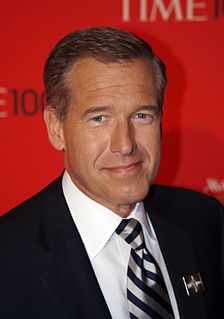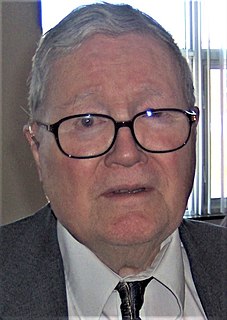A Quote by Brian Williams
If everyone in America agreed that 80 percent of their contributions for House, Senate, and president could only come from people making contributions of $100 or less, we'd have a pretty darn good system. The influence of money would be gone.
Related Quotes
What does a political revolution look like? It means that 80 percent of the people vote in national elections, not 40 percent. It means that billionaires can't make unlimited campaign contributions and buy and sell politicians. It means that the U.S. government represents the needs of all the people, not just the 1 percent and their lobbyists.
For the United States, our political system is clearly distorted. We have gerrymandering so that there is a situation where a million more voters who vote for Democrats, yet the House is controlled by the Republicans. So clearly, the way our Congress operates is important. The other big issue is the influence of money in politics. It's not only campaign contributions. People like Trump - either you become very dependent on your benefactors or you are very rich.
The people who have achieved more than you, in any area, are only a half step ahead of you in time. Bless them and praise their gifts, and bless and praise your own. The world would be less rich without their contributions, and it would be less rich without yours. There's more than room for everyone; in fact, there's a need for everyone.
I do normal kind of contributions, particularly for people who are going over to Africa and help highlighting global health, and that's tended to be pretty bipartisan in nature because of the coalition there exists fortunately around these global health issues. But I don't think my backing, putting a lot of money into political contributions is a way I'm going to try and help improve the world.
Robert Torricelli, a powerful fund-raiser who helped raise more than $100 million for the Democratic party, took inappropriate gifts from a businessman, including an $8,000 gold Rolex watch, for which he was severely admonished by the Senate Ethics Committee in July. To recap: raising $100 million in contributions from gigantic corporations - ethical; taking a watch - unethical. That's the Senate Ethics Committee, an oxymoron since 1974.
The most encouraging sign is that 71 percent of the public believe the system is profoundly corrupted by the power of money. Ninety-six percent of the people believe it's "important" that we reduce the influence of money. Yet 91 percent think it's "not likely" that its influence will be lessened. Think about that: People know what's right to do yet don't think it can or will be done.
The role of campaign contributions in our political system and the role of lobbyists have now reached levels that are quite unhealthy for the operations of our democracy. But the antidote, as in past eras of lobbyist excess, is for more involvement by citizens to build pressure on members of the House and Senate to serve the public interest.
To compel a man to furnish contributions of money for the propagation of opinions which he disbelieves and abhors, is sinful and tyrannical; . . . even the forcing him to support this or that teacher of his own religious persuasion, is depriving him of the comfortable liberty of giving his contributions to the particular pastor whose morals he would make his pattern. . . .
The case may very well be that Congress is willing to restrict campaign contributions because it has these privileges. It is true that incumbents normally get larger contributions than their challengers. The opponents at least get some money, but they do not have access to the perquisites of the incumbent.
































